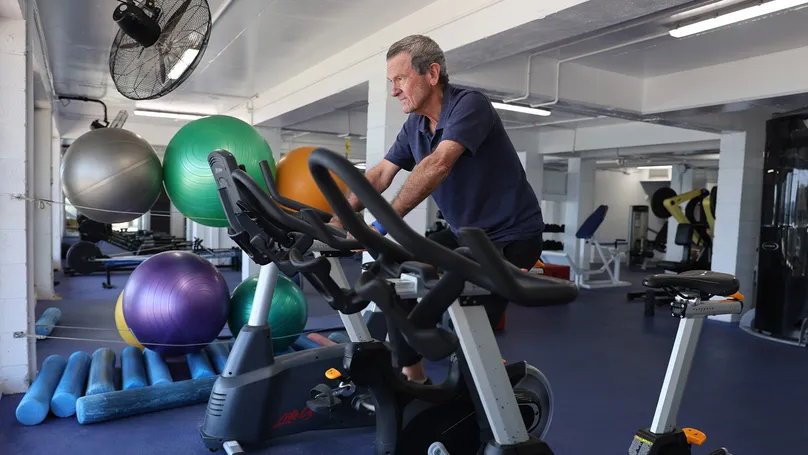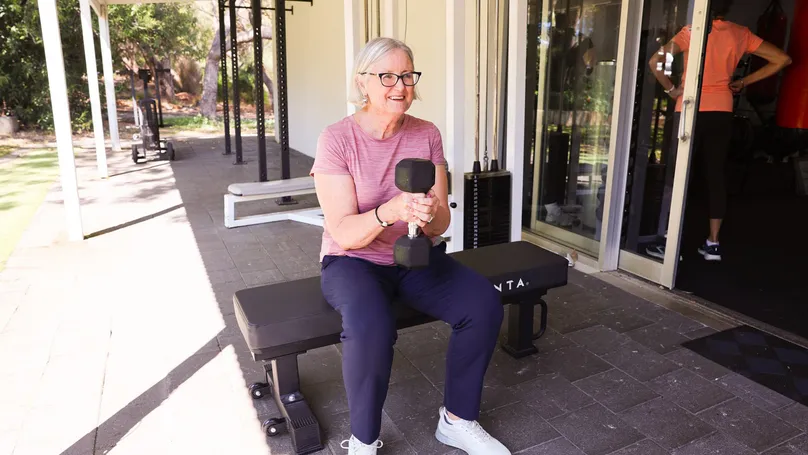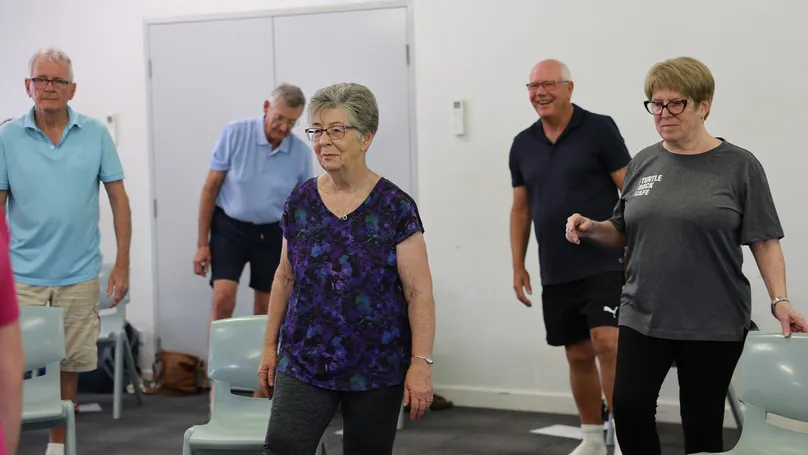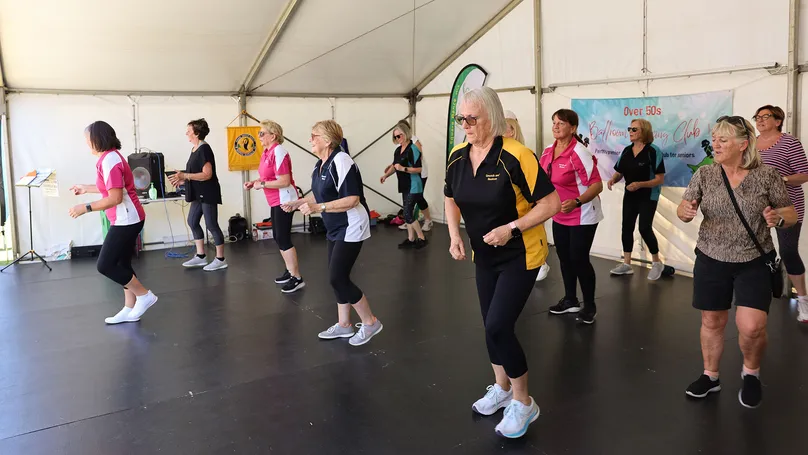Strength & exercise
Enjoy the benefits of movement regardless of your age. Exercise is excellent for lowering the risk of falls and disease and improving health. It even strengthens social connections and improves brain function!
How much exercise is enough?

It’s no secret that exercise has a dramatic positive effect on ageing. But how much exercise should you do?
The answer is in the Department of Health's exercise guidelines for older adults. They recommend that older people do 30 minutes of moderate-intensity activity most days, and every day is even better.
If you can't do 30 minutes, start with 10 minutes and build up every 2 weeks by 5 minutes. Reducing the amount of time you spend sitting has huge health benefits, too.
Trying different activities is good for your mind and body. It also keeps things interesting!

The benefits of exercise for older people?
Exercise offers older people a wide range of positive benefits. Exercise helps to:
- Reduce health issues, including high blood pressure, high cholesterol, type 2 diabetes, joint and bone conditions, heart disease and some cancers
- Reduce the risk of falls and injury
- Produce more energy
- Improve mental health
- Increase sleep quality
- Improve concentration
- Lower stress and anxiety
- Improve quality of life

What about health conditions?
Simply increasing your daily activity can improve your health and positively affect how you age.
If you have an existing health condition, it’s a matter of taking the time to work out what's right for you. It's important to consider your medical history, so talk to your doctor or specialist about what activity suits you.
For example, if you have:
- Heart problems, diabetes, or asthma - you could try moderate walking or swimming
- Arthritis - you could try hydrotherapy or swimming in a warm pool
- Osteoporosis - you could try weight-bearing and strengthening activities

What is moderate intensity?
Moderate-intensity exercise is physical activity that gets your heart rate up to 50-60% higher than your resting heart rate.
This means the activity makes your heart beat faster and your breathing a bit harder, but you're not completely exhausted.
Moderate-intensity activities that are good for your heart, lungs, and blood vessels include:
- Brisk walking
- Swimming
- Golfing with no cart
- Water aerobics
- Gardening
- Tennis
- Mopping and vacuuming

What else can I do?
Other activities you can consider include strengthening, flexibility, and balancing exercises. These will all contribute to greater independence and a higher quality of life.
- Climbing stairs
- Light weight training
- Tai Chi
- Bowls
- Yoga
- Dancing
- Resistance training